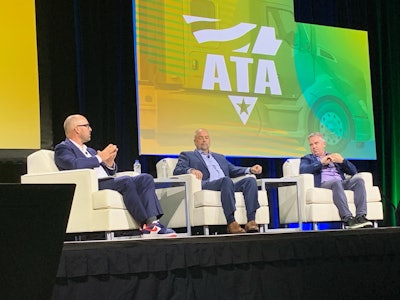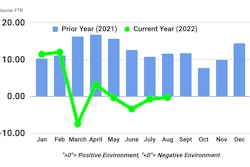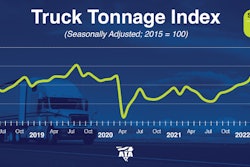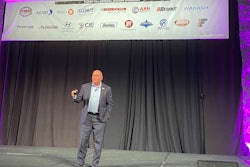
The U.S. has suffered through 12 economic recessions since World War II, and No. 13 is on deck.
Tom Joyce, MUFG Securities Americas Managing Director, Global Head of Investment Banking Capital Markets Strategy, speaking at the American Trucking Associations Management Conference and Exhibition in San Diego this week, noted that inflation and labor shortages plaguing the U.S. are global problems, adding that nearly every major global economy is experiencing inflation well above target levels.
Did you miss our recent webinar: "2023 Outlook for Trucking"?
Get and on-demand recording and hear from economists and industry experts discuss the market forces, business conditions and supply chain issues that will impact carrier operations in 2023. This complimentary CCJ webinar is sponsored by Bestpass.
"After a decade of central banks trying to create inflation, we now have extraordinary global inflation in every major economy in the world," he said. Ninety central banks in the world are raising rates to cool inflation, and "every major economy in the world is slowing at the same time."
Joyce cautioned against laying blame at Russia's invasion of Ukraine. It's certainly a factor, he said, but so are the trade wars in 2018 and COVID through 2020 and into 2021.
"We still have some difficult months ahead," he said, adding that monetary policy operates with a lag so it will be 6 to 12 months months before we feel the effect of rising interest rates, and that "the low point for U.S. economy is probably 6-9 months out. The consumer can handle high inflation for six (or) nine months, but it's harder to handle for 12 to 18 months and that's sort of exactly where we are."
"I do believe the global economy and the U.S. economy are going into recession early next year," Joyce said, adding economic recessions are rare, "they tend to be short," and he expects this one to be "mild."
Bob Costello, American Trucking Associations' chief economist and senior vice president, agreed that the U.S. and global economies are likely to slip into recession early next year but expects the effect to be more minimized in the U.S. than globally.
"The U.S. is the best house on a really bad block," he said.
Consumer spending on goods is falling. It's down almost 1% this year and could fall 1.3% next year, impacting trucking demand. However, Costello said, stepping back and looking at the bigger picture, a down cycle itself isn't always catastrophic.
"We're still going to be the second and third highest years ever," he said in terms of consumption.
In 2021, carriers told shippers they couldn't haul all the freight, dumping loads into the spot market and spiking volumes more than 100%. Spot load postings this year have fallen 65%, but contract freight is growing: from mid-2021 through 2022, it's up 7.7%.
"By no means has the freight market collapsed on us," Costello said. "We're just going back to more normal splits."
During good times, the industry generally buys more trucks but this time fleets couldn't get more. Last year was the best year in trucking history, but truck count contracted because fleets couldn't get new trucks and leased on drivers hit the spot market to take advantage of superheated rates.
"We didn't add capacity in 2021, and I think that's going to help," Costello said.
Softening demand and inability to get new equipment helped shave a few thousand off the industry's truck driver shortage from 2021 to 2022 and is likely to do the same next year.
Fuel prices are expected to come down in 2023, but would still likely be the second highest on record. Yet despite all the headwinds, Costello said there will be opportunities next year for smart operators, as fleets that bought expensive used trucks with unsustainable spot rates are likely to fold and further suppress capacity.












